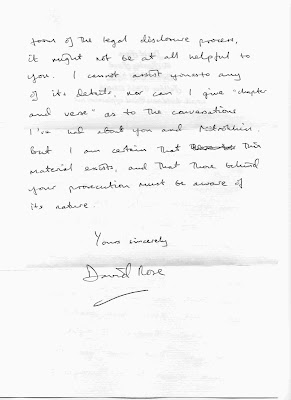As the next election was approaching, I did what I could to secure my chance to vote, and I sent letters to the Kingston-upon-Thames Electoral Registration Officer to be registered in my constituency. All this was to no avail, and as you can see from the replies below, my right to vote in the 1997 General Election was taken away from me.
Second letter from Kingston Electoral Registration Officer
Not only was I prevented from voting in the 1997 election, but my opportunity to vote in that election was gone forever. This was to have a fundamental effect on my view of British democracy, and I felt so angry that I no longer wanted to take any part in the election process.
It may seem of no importance to the officials who administer the disenfranchisement of prisoners, but to an individual like me it completely changed my view of how I would react to enrolment on the electoral register. If I was not “good” enough to be registered when I was forced to be a prisoner, then I did not want to be involved in that system after my release.
I have never registered as a voter since my release from prison, and I will not do so while I remain in the United Kingdom. The system has destroyed any faith I had in its fairness, and what I believe democracy to be. I will not be a part of such a system.
I was a convicted prisoner, and as far as the electoral system is concerned I shall always be a convicted prisoner. They did not want me to participate in “their” elections, and so I will not participate - they have achieved the result they wanted.
Hey, leave me alone guys
Remember, YOU took away MY vote
Remember, YOU took away MY vote








